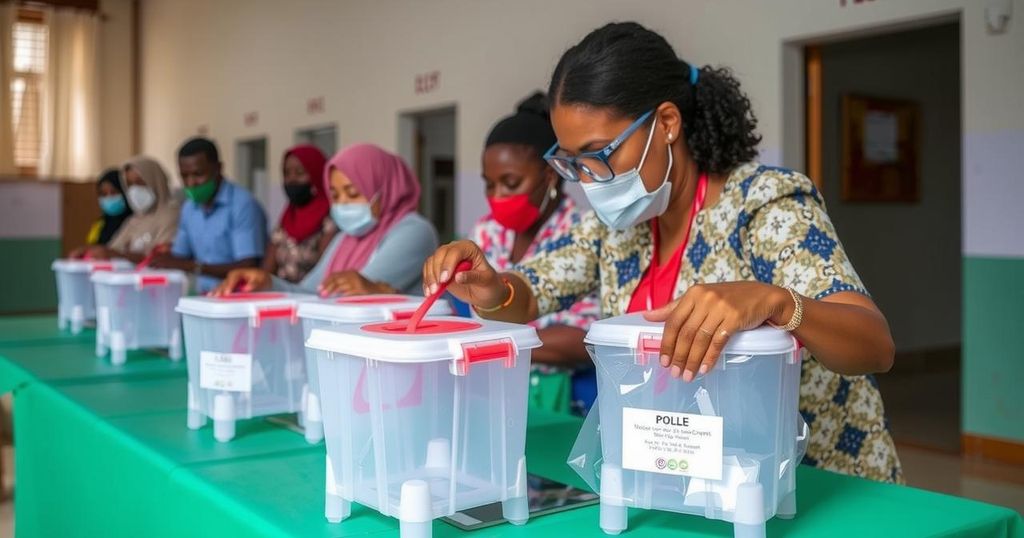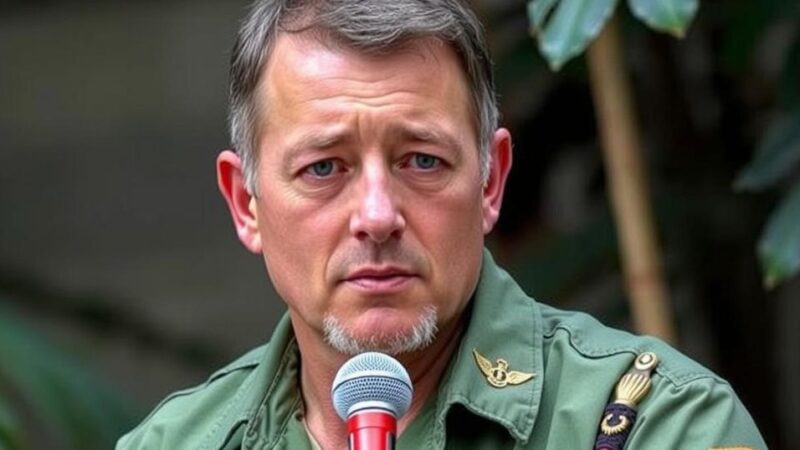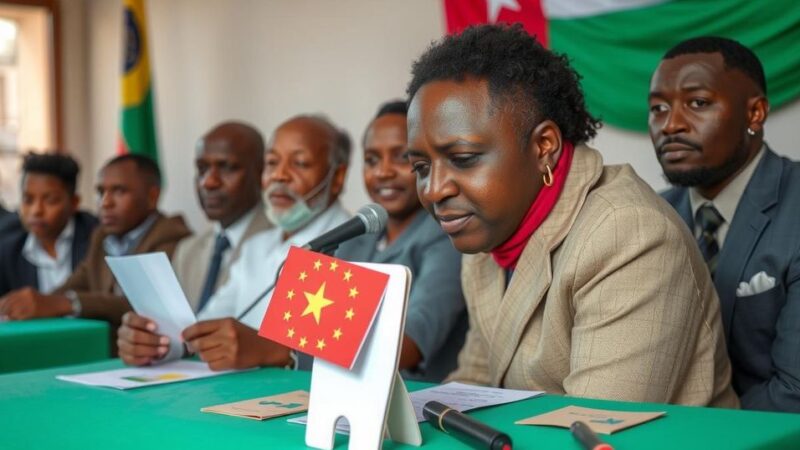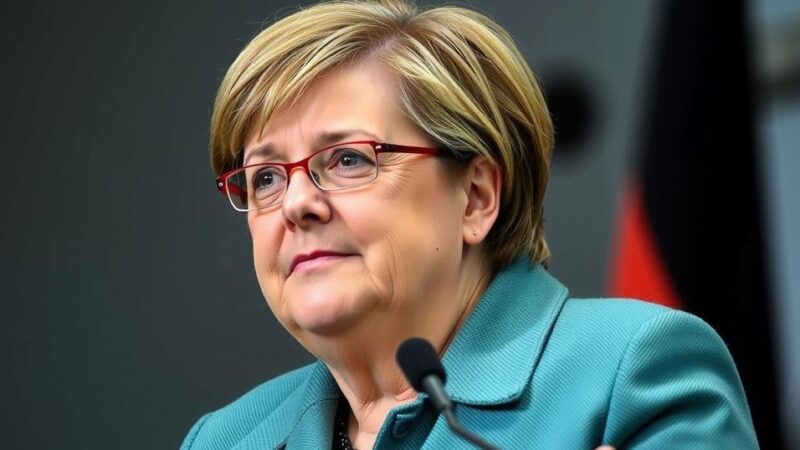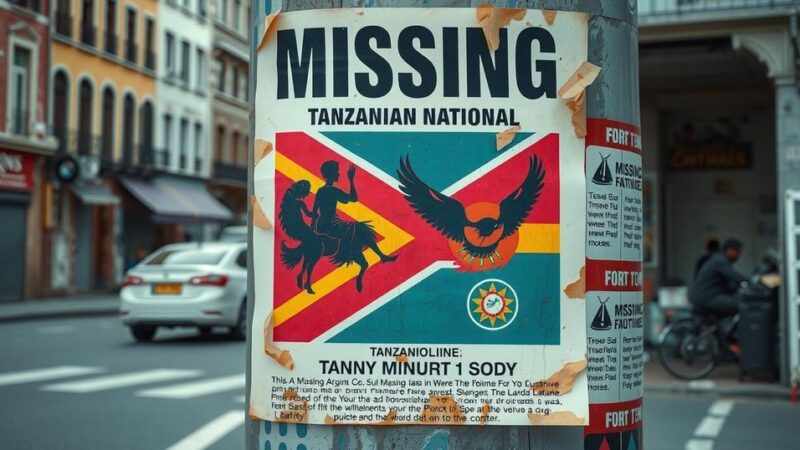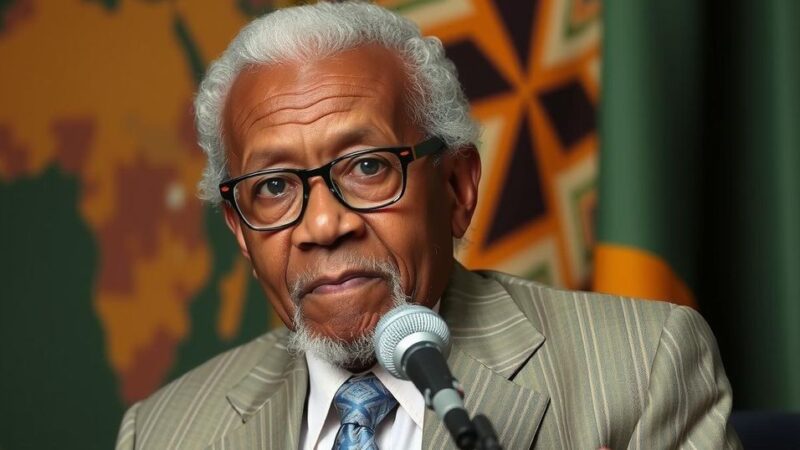Voters in Comoros are casting ballots for a 33-seat parliament amid allegations of irregularities in past elections. President Azali Assoumani, criticized for authoritarianism and potential dynastic ambitions, oversees a challenging political climate as some opposition factions advocate for a boycott while others participate. Results are anticipated by January 17 after polls close at 4 p.m.
On Sunday, voters in Comoros participated in elections for the 33-seat parliament in the Indian Ocean archipelago. This event follows President Azali Assoumani’s recent reelection, which was alleged by the opposition to have been compromised by extensive irregularities, claims that the ruling party contests. Polling stations opened at 8 a.m. for approximately 338,000 eligible voters, with the last parliamentary elections taking place in January 2020. Nearly 100 candidates were enlisted by the Supreme Court to compete in this electoral process.
President Assoumani’s tenure began in 1999 following a coup, and he has been accused by his adversaries of authoritarian tendencies and preparations to establish his son, Nour El-Fath, as his successor post-2029. Critics assert that following the president’s decision to grant his son broad powers, Assoumani’s regime appears increasingly vulnerable. Whilst some opposition factions, notably Juwa under former President Ahmed Abdallah Sambi, have called for an electoral boycott, others remain resolute in their participation.
Hamidou Karihila, a contender from the opposition Hope of the Comoros party, articulated the sentiment of those participating, stating that, “The Azali regime is weakened … by participating in these elections we are contributing to further exposing the flaws in its system and accelerating its inevitable fall.” Polls will conclude at 4 p.m., with results anticipated by January 17.
The political landscape in Comoros has been marked by instability and allegations of corruption, particularly under President Azali Assoumani, who has maintained power since a coup in 1999. The last parliamentary elections took place in January 2020, and Assoumani’s recent reelection raised suspicions regarding the integrity of the electoral process. With authoritarian governance and the contemplation of dynastic succession raising concerns among the public, the current elections symbolize a critical moment for both the opposition and the ruling party. The opposition’s factionalism, exemplified by the boycott calls from the Juwa party versus the participatory stance of other groups, highlights the complex dynamics at play within Comoros’ political scene. This election serves not only as a critical mechanism for public expression but also as a litmus test for the regime’s support amid growing dissent.
The parliamentary elections in Comoros reflect significant tensions within the nation’s political framework, with the opposition wrestling with calls for boycott amidst accusations of authoritarianism against President Assoumani. The outcome of these elections, set against a backdrop of previous electoral controversies and the potential for dynastic succession, could be pivotal in shaping the future political landscape of the archipelago. With results expected by January 17, the implications of this electoral event will be closely watched both domestically and internationally.
Original Source: www.voanews.com

